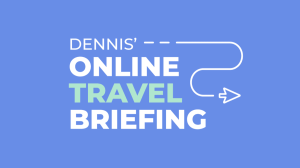Don't Expect a Huge Crisis Bounceback for Online Travel Agencies This Time
Skift Take

Dennis' Online Travel Briefing
Editor’s Note: Every Wednesday, Executive Editor and online travel rockstar Dennis Schaal will bring readers exclusive reporting and insight into the business of online travel and digital booking, and how this sector has an impact across the travel industry.Online Travel This Week
For major online travel agencies, their competitive position and outlook is way different in 2022 than in the aftermath of 9/11 and the end of the Great Recession in 2009.
A couple of travel research brands, Skift Research and Bernstein, agree that the future will be much more challenging for the online travel agency sector.
In a December Skift podcast, Booking Site Winners and Losers, which featured Skift Research's Seth Borko and myself, Borko said online travel agencies recovered robustly after 9/11 in 2001 and the financial crisis of 2007 to 2009 as hotels needed the big online travel agencies to help them fill rooms.
But it's different now.
"Hotels have maintained pricing power, and ADRs (Average Daily Rates) are nearly 90 percent recovered," Borko said, referring to competitive dynamics at the end of 2021 and adding that the extent of the hotel recovery depends on the region. "OTAs' reputation for discounting has suffered as hotel direct bookings come with lower rates. And customers have more to spend."
Borko, who covered much of this subject in a recent Skift Research Online Travel Agency Factbook, said this time, during the pandemic, the online travel agencies aren't getting the same lift they did after past crises.
"Although they are recovering quite fast, it was

